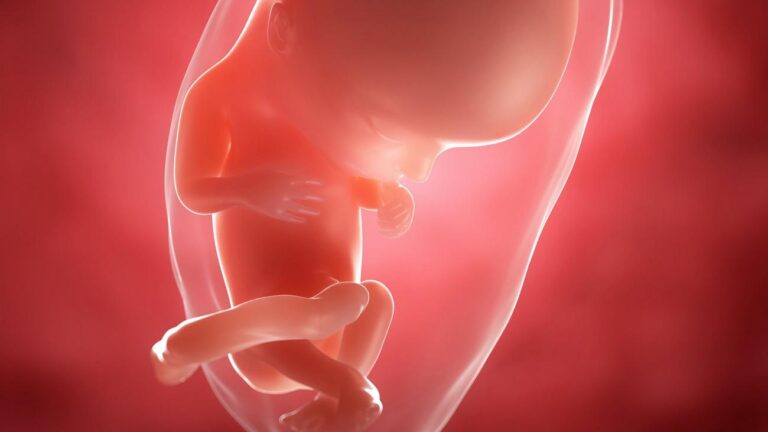12 weeks pregnant: Pregnancy Symptoms & Baby Development
Read time: 4 minutes
12 weeks pregnant: Pregnancy Symptoms & Baby Development
Month 3 (Trimester 1)
Baby development at 12 week
Your baby’s brain is continuing to develop.
First scan
If you haven’t already, it’s time to book an appointment for your 12 week scan.
Omegas 3 and 6
Discover how these beneficial fats support the development of your baby’s brain.
Baby development at 12 weeks

What does my baby look like? And, what size is my baby?
At 12 weeks pregnant, your baby is around 6cm in length, having doubled in size in the last 3 weeks alone, and is roughly the size of a plum. Amazingly, your baby is now fully formed, with vital organs, bones and muscles in place, all ready to grow and mature over the coming months.
Your baby’s head is still large compared to their body, but they now have very definite facial features and their eyelids are now visible, although they will remain closed for some time3. In their mouth, 20 small buds sit inside the gums, which will eventually emerge as baby teeth.
Pregnancy at 12 weeks (first trimester)
First scan
You are likely to have your first ultrasound scan when you’re around 12 weeks pregnant.
Early pregnancy symptoms at 12 weeks

Also known as the dating scan, it allows your midwife to get a more accurate idea of your baby’s due date. It’s often at this time that mums choose to share their news with family, friends and colleagues
What’s happening in my body?
At 12 weeks pregnant, you could see the beginnings of a baby bump, although this isn’t true for everyone.
Early pregnancy symptoms at 12 weeks
Early pregnancy symptoms vary from person to person. At 12 weeks, you may experience any of the following signs of pregnancy, or no symptoms at all:
Breast tenderness
Your breasts may become larger and feel sore. You may also find your nipples stick out more than usual and darken in colour as your body begins to prepare for breastfeeding.
Tiredness and fatigue
During the first 12 weeks, hormonal changes can leave you feeling tired or exhausted.
Nausea and vomiting
Morning sickness affects up to 80% of mums-to-be in the first trimester6. It can strike at any time of the day or night and varies from mild nausea to sickness throughout the day.
Bloating and gas
The pregnancy hormone progesterone slows down your digestion which can lead to bloating and excess gas7.
Cramping or bleeding
Light cramping and spotting are common in the early stages of pregnancy8,9. If the pain becomes severe (stronger than period cramps) or if bleeding becomes heavy, you should talk to your GP.
Frequent urination
Frequent trips to the bathroom are one of the most common symptoms of early pregnancy, as your growing uterus begins to put pressure on your bladder.
Mood swings
Pregnancy hormones, oestrogen and progesterone, soar during the first 12 weeks of pregnancy10, affecting how you’re feeling emotionally. Get plenty of rest and light exercise to keep you feeling like yourself.
Focus on Omegas 3 and 6
The fatty acids Omega 3 and 6 support the healthy development of your baby’s brain, and can only be obtained from your diet. Making sure you include good sources of Omega 3 in your diet will help you give your baby the best start for a healthy future.
Making sure you include good sources of Omega 3 in your diet will help you give your baby the best start for a healthy future.

Try these Omega 3-rich snacks and small meals:
- Mackerel on a slice of wholegrain toast
- Grilled salmon with steamed leafy vegetables
- Salmon fishcakes
- A handful of nuts and seeds
- A bowl of wholegrain cereal
THE
SCIENCE
BEHIND
OMEGAS 3 & 6
Powered by Nutricia
Omegas 3 and 6 are two types of long chain polyunsaturated fatty acids, collectively called LCPs. One of the Omega 3 LCPs, known as docosahexaenoic acid, or DHA for short, contributes to your baby’s brain development13. It also supports the normal development of your baby’s eyes and is associated with development post-birth, specifically normal visual development throughout the first year.
To support your baby’s brain development, try to include an extra 200mg of DHA each day. Oily fish are an excellent source and eating 1-2 portions of oily fish per week will provide sufficient DHA for you and your baby. However, it’s recommended that you eat no more than two portions per week due to the toxins they may contain. For a healthy intake of other Omega 3 fats on the days you don’t eat oily fish, snack on a handful of nuts or start your day with a bowl of wholegrain cereal.
